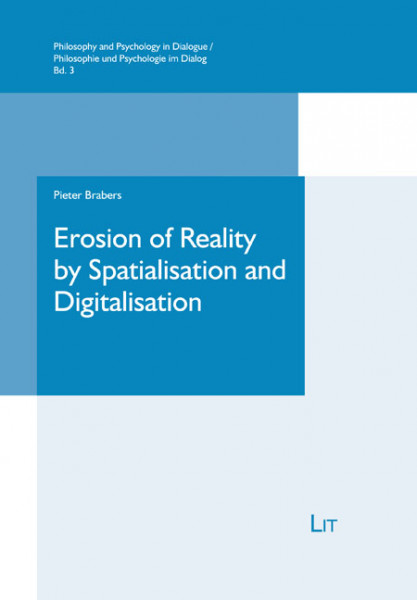Pieter Brabers
Erosion of Reality by Spatialisation and Digitalisation
A phenomenological inquiry
Reihe: Philosophy and Psychology in Dialogue / Philosophie und Psychologie im Dialog
- ISBN: 978-3-643-91355-5
- Band Nr.: 3
- Jahr: 2021
- Seiten: 496
- Bindung: broschiert
- CHF: 59.90
Zuletzt angesehen



